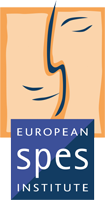 In the wake of the global financial crisis, many students in economics have expressed their discontent with their education presented by the International Student Initiative for Pluralist Economics (ISIPE), which now has gathered 65 student groups demanding pluralism in economics education. They call for a change that economics students will profit from exposure to different perspectives and ideas. Pluralism will not only help to enrich teaching and research and reinvigorate the discipline. More than this, pluralism carries the promise of bringing economics back into the service of society. Three forms of pluralism must be at the core of curricula: theoretical, methodological and interdisciplinary.
In the wake of the global financial crisis, many students in economics have expressed their discontent with their education presented by the International Student Initiative for Pluralist Economics (ISIPE), which now has gathered 65 student groups demanding pluralism in economics education. They call for a change that economics students will profit from exposure to different perspectives and ideas. Pluralism will not only help to enrich teaching and research and reinvigorate the discipline. More than this, pluralism carries the promise of bringing economics back into the service of society. Three forms of pluralism must be at the core of curricula: theoretical, methodological and interdisciplinary.
Theoretical pluralism emphasizes the need to broaden the range of schools of thought represented in the curricula. It is not the particulars of any economic tradition we object to. Pluralism is not about choosing sides, but about encouraging intellectually rich debate and learning to critically contrast ideas. Where other disciplines embrace diversity and teach competing theories even when they are mutually incompatible, economics is often presented as a unified body of knowledge. Admittedly, the dominant tradition has internal variations. Yet, it is only one way of doing economics and of looking at the real world. Such uniformity is unheard of in other fields; nobody would take seriously a degree program in psychology that focuses only on Freudianism, or a politics program that focuses only on state socialism. An inclusive and comprehensive economics education should promote balanced exposure to a variety of theoretical perspectives, from the commonly taught neoclassically-based approaches to the largely excluded classical, post-Keynesian, institutional, ecological, feminist, Marxist and Austrian traditions - among others. Most economics students graduate without ever encountering such diverse perspectives in the classroom.
Furthermore, it is essential that core curricula include courses that provide context and foster reflexive thinking about economics and its methods per se, including philosophy of economics and the theory of knowledge. Also, because theories cannot be fully understood independently of the historical context in which they were formulated, students should be systematically exposed to the history of economic thought and to the classical literature on economics as well as to economic history. Currently, such courses are either non-existent or marginalized to the fringes of economics curricula.
Methodological pluralism stresses the need to broaden the range of tools economists employ to grapple with economic questions. It is clear that maths and statistics are crucial to our discipline. But all too often students learn to master quantitative methods without ever discussing if and why they should be used, the choice of assumptions and the applicability of results. Also, there are important aspects of economics which cannot be understood using exclusively quantitative methods: sound economic inquiry requires that quantitative methods are complemented by methods used by other social sciences. For instance, the understanding of institutions and culture could be greatly enhanced if qualitative analysis was given more attention in economics curricula. Nevertheless, most economics students never take a single class in qualitative methods.
Finally, economics education should include interdisciplinary approaches and allow students to engage with other social sciences and the humanities. Economics is a social science; complex economic phenomena can seldom be understood if presented in a vacuum, removed from their sociological, political, and historical contexts. To properly discuss economic policy, students should understand the broader social impacts and moral implications of economic decisions.
